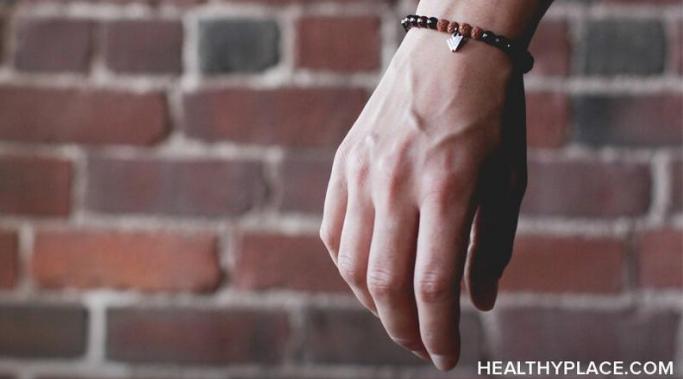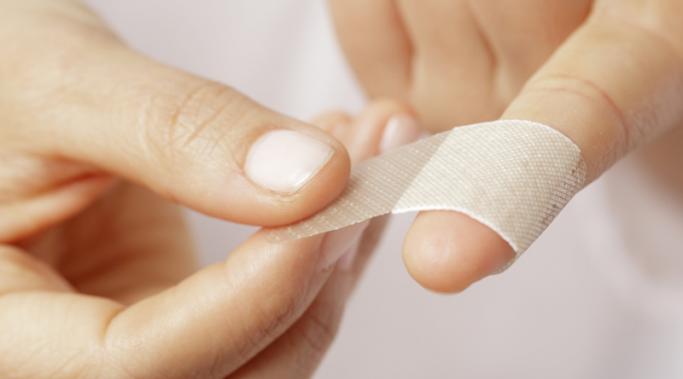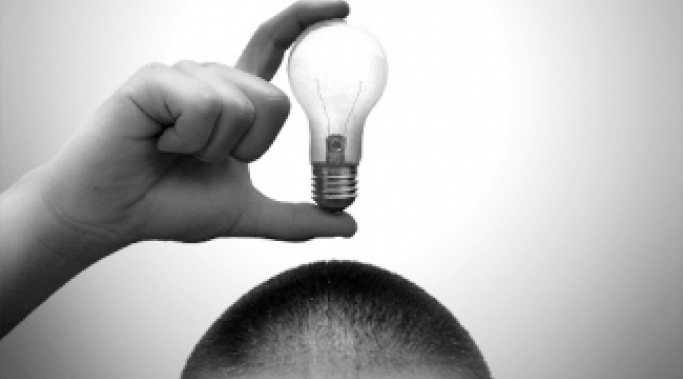When you are smack in the middle of a ridiculously frigid winter, you are bound to have health issues thrown at you. Cold weather brings forward the flu, sinus congestion and severe agitation with trying to stay healthy (especially when nothing seems to be working). When you are sick and struggling with stopping self-harm urges, it can be a battle trying to switch the focus from harming your body to helping it. But you need to remember that your health is important. In the battle of self-harm versus sickness, healing the sickness needs to win.
Speaking Out About Self Injury
When you are filled with intense emotion, your brain tends to think in ways your body is not used to. You start to see your surroundings through a foggy lens and your thoughts are not the clearest to decipher. You may think back to a time when you felt similar emotions and that self-harm flashback could cause you to fall back into self-injury.
In the realm of self-harm, happiness is sometimes just as much a battle as the fight against self-injury. Maintaining a sense of positivity in your life can be as difficult as turning away from the self-harm urges and triggers that follow your every move. When you are struggling with severe depression, self-harm may become more of an everyday occurrence because it has been the coping skill you have always turned to (even though unsafe and unhealthy). But self-harm is a Band-Aid, and your can't put a Band-Aid over unhappiness.
More times than not, those who self-harm have incredibly low self-esteem and self-confidence and have an "everyone hates me" mindset. This can often route from struggles with depression and anxiety, which is common in the self-harm realm. At times, those who feel this way may stretch what they see to be the truth – meaning that while they see everyone as hating them, those around them really don’t feel that way. Since this is common amongst those who self-harm and battle mental health demons, it also means it could take many years before they begin to gain some sort of positive self-concept.
When people who self-harms feel the need to harm their bodies, they typically turn to the same coping skills they use on a daily basis to stop the urge. Many people listen to music or use deep breathing to help maintain composure when feeling uneasy. Going for a walk or writing down thoughts can be helpful when handling the urge to self-harm. However, sometimes turning to the same coping skills can be just as frustrating as the urge itself when those coping skills don’t always work. Unique self-harm alternatives like massage and acupuncture can help stop self-harm.
Criminal Minds, Law and Order, NCIS -- crime shows have become a staple on television for over a decade. These kinds of shows mesh mystery and violence with suspense and romance and when all of those factors collide, of course it’s going to make for an impressive hour of television. Another piece that fits in with the crime show puzzle is violence, blood and mental illness. Unfortunately, many negative characters in these kinds of shows end up with mental illness, which stigmatizes mental illness and those truly struggling with it. You also see a lot of self-harm.
Everybody has something that makes the hair on the back of their neck stand up. It may be the sound of nails on a chalkboard or the smell a certain food they cannot stand. Certain words can even make people’s skin crawl for reasons other people may not understand. And there are certain phrases that could trigger emotions when heard by those who self-harm. Those who do not struggle with self-injury may not see some of these phrases as anything but an ordinary, everyday statements. Even though certain things may seem normal to one person, they may be seen and heard in a totally different light and trigger self-harmers.
It isn’t easy growing up – that is a hard, long-known fact. Adolescence is when change is constantly occurring and it is also when many of those who struggle with self-harm become addicted. This isn’t the case for all because there are many individuals who begin self-injurious behaviors before they hit their teens and some who begin self-harm during adult years.
We have all experienced moments that spark a certain thought or make us feel a certain way. For some, an “ah-ha” moment could be a specific lesson an admired professor taught or something tragic occurring on the news. It may be the birth of a family member or the death of a loved one that really stops you in your tracks. Sometimes, these incidents could be the push you need to stop an addiction or an unsafe habit.
Even though the New Year has barely begun, many people have already fallen short when it comes to resolutions. People often go into the New Year with bright expectations and when those expectations do not work out as hoped, people may give up. For those trying to handle both daily life and living with mental illness, giving up on New Year's resolutions is not the best decision when hoping to turn over a near leaf and stay free of self-harm/self-injury.









